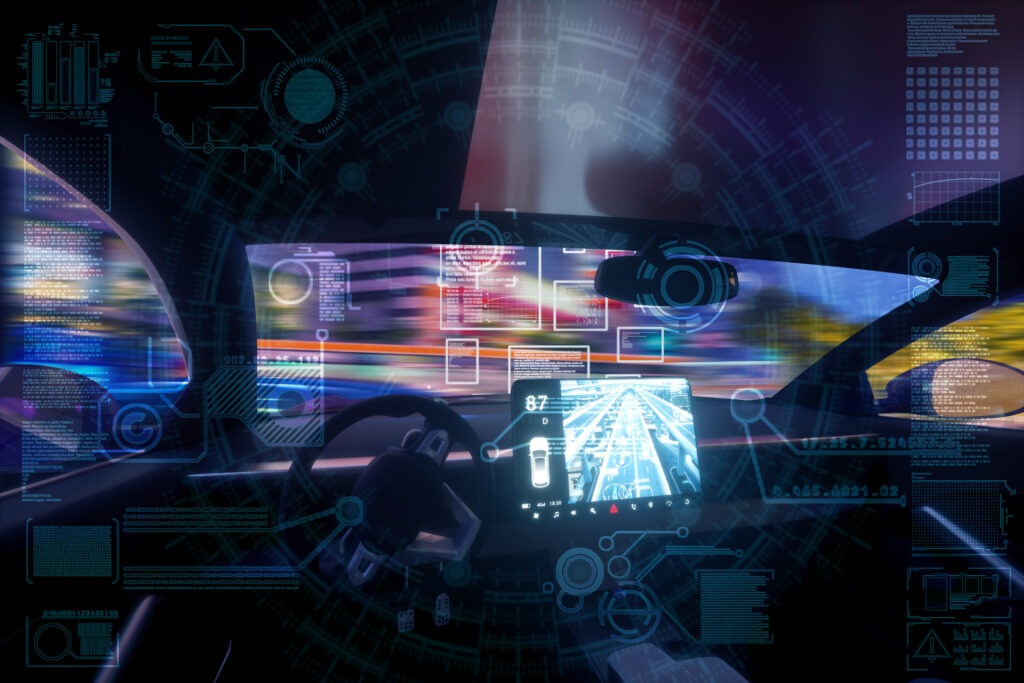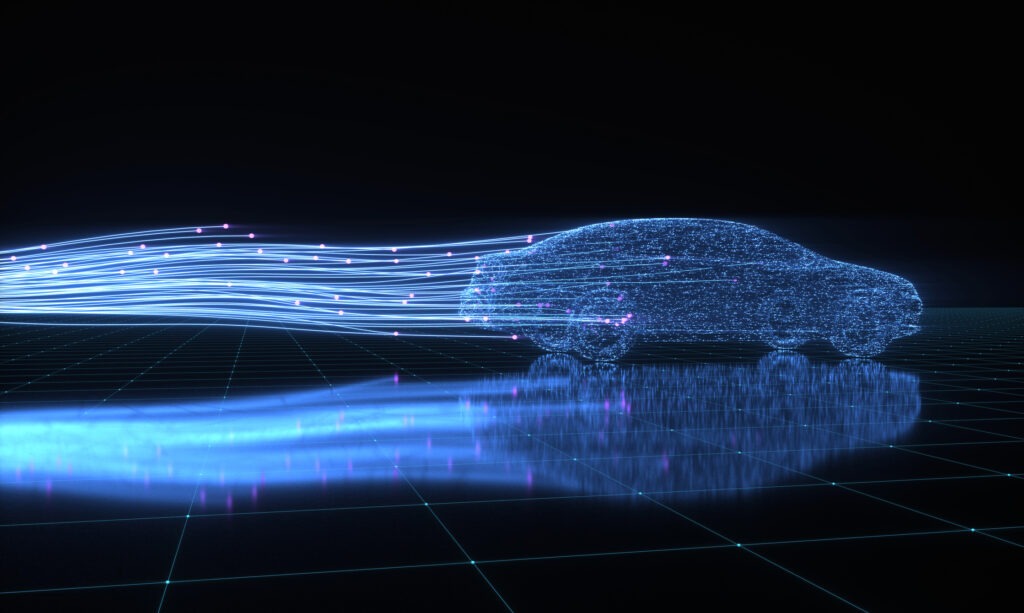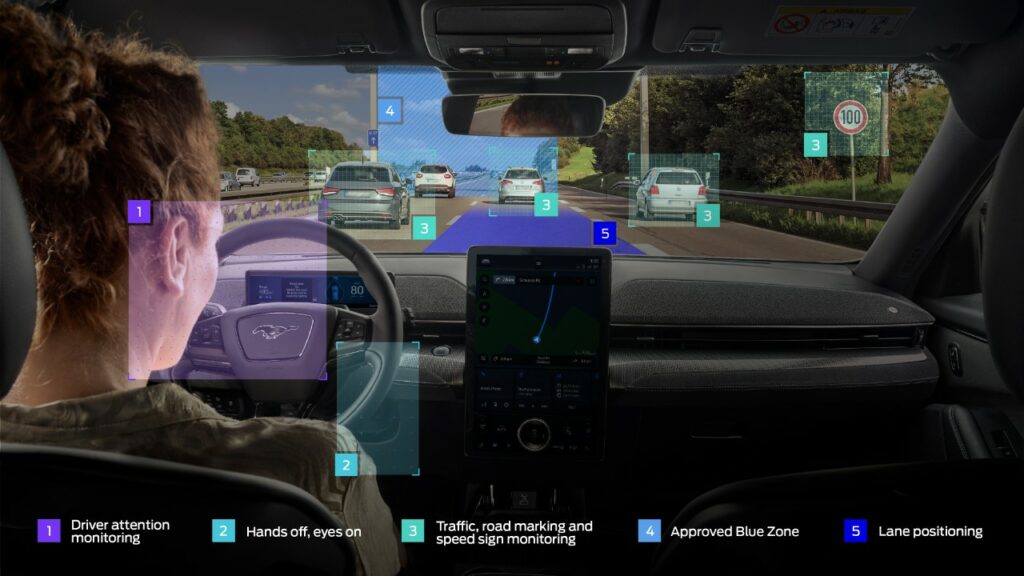How AI could revolutionise the automotive industry
05 July 2023

The automotive industry is experiencing major disruptions, particularly under the influence of advanced technologies. Rebeka Shaid, Autovista24 journalist, examines how artificial intelligence (AI) is revolutionising the driving experience and the manufacturing process.
The list of opportunities for AI applications in the automotive industry is long. In smart factories, AI has become indispensable and is being utilised to improve vehicle performance as well as streamline production processes and operations.
The technology is featured in advanced driver-assistance systems (ADAS), as well as awareness monitoring and infotainment functions. One could hardly talk about AI without mentioning autonomous driving. Systems like Tesla’s Autopilot are a primary example of how carmakers are pushing AI technology. But what challenges lie ahead?
Europe’s AI Act
To regulate the use of AI, especially in high-risk areas such as autonomous driving, policymakers in the EU are working on the world’s first AI law. The ‘Artificial Intelligence Act’ aims to create a common regulatory and legal framework for the technology, with a final agreement expected to be reached by the end of 2023.
‘Although the EU´s AI Act proposal for high-risk AI systems does not directly apply to automated and autonomous vehicles (AVs) and their AI components, several of the AI Act´s accountability requirements will also apply to AVs,’ Nils Löfing, counsel at international law firm Bird & Bird, told Autovista24.
Business leaders from across Europe, including the CEO of Renault, expressed concern over the proposed regulations, which they believe could overregulate AI. In an open letter sent to the European Commission last week, more than 150 executives argued that the proposed Act could damage Europe, leaving it to trail behind the US.
‘The draft legislation would jeopardise Europe’s competitiveness and technological sovereignty,’ the letter states. ‘Such regulation could lead to highly innovative companies moving their activities abroad, and investors withdrawing their capital from the development of European Foundation Models and European AI in general. The result would be a critical productivity gap between the two sides of the Atlantic.’
Impact on autonomous vehicles
EU lawmakers want to ensure that AI systems, including ChatGPT, would have to disclose AI-generated content and guarantee that sensitive data is safe. This means car and tech companies would need to take decisive steps against potential cyber threats. Additionally, the impact of the proposed AI Act on autonomous driving cars could be substantial, especially when it comes to data governance and risk management.
‘It will be important for OEMs as well as traditional automotive and software suppliers to watch this space as the AI Act requirements that will be applied under the Type-Approval Framework Regulation have the potential to significantly impact the way AVs and their AI-based safety components are developed in future,’ said Löfing.
He added that it will be crucial for the Commission to provide clear requirements allowing OEMs, together with automotive and software suppliers, to reasonably implement high-risk AI systems into AVs.
‘The goal must be to find an appropriate balance between mitigating risks and allowing the innovation of AVs to reap their societal benefits, such as a reduction of traffic levels and accidents or cutting of fuel consumption and emissions,’ he said.
Mercedes-Benz is one manufacturer eager to advance AI in cars. The luxury brand launched sales of its SAE Level 3 driving feature, Drive Pilot, in Germany last year. It is available in S-Class and electric EQS models. The system also received government approval in the US earlier this year. The technology allows cars to drive with little steering input.
‘Mercedes-Benz sees AI as a groundbreaking technology and an opportunity for innovative and even better processes, products, and services. In addition to automated driving, Mercedes-Benz has AI projects along the entire value chain with the aim of supporting our daily work and expanding our competitive advantage,’ a spokesperson for the brand told Autovista24.
ChatGPT coming to vehicles
The German carmaker is also enhancing AI use by introducing ChatGPT into its vehicles. Since June, around 900,000 cars in the US can rely on the new service, which will be used for audio requests through the ‘Hey Mercedes’ voice assistant. This is expected to make the voice control more intuitive, allowing it to respond to more complex requests while also enabling conversations.

Interestingly, Mercedes-Benz is trialling this feature in North America first, promising to keep tabs on potential risks. The US government is only now starting to look at accountability measures to regulate generative AI systems, but EU regulators have a clearer position on the matter and want ChatGPT to comply with certain transparency requirements.
‘While big tech companies are sounding the alarm over their own creations, Europe has gone ahead and proposed a concrete response to the risks AI is starting to pose,’ said MEP and co-rapporteur Brando Benifei. ‘We want AI’s positive potential for creativity and productivity to be harnessed but we will also fight to protect our position and counter dangers to our democracies and freedoms.’
Mercedes-Benz told Autovista24 that it has defined four principles according to which AI will be developed and used. These are intended to strengthen trust in the company, its products, and its services, while also providing employees with orientation for dealing with AI. It said that principles include ‘responsible use, explainability, privacy, security, and reliability.’
Supply chains
Many carmakers consider artificial intelligence as an important enabler of vehicle intelligence, and Mercedes-Benz said it clusters AI into three areas of application.
‘The first is customer functions, i.e. those experienced directly by the user; the second is embedded AI relating to the vehicle but not experienced directly by the customer, for instance electric drive or safety functions; the third is AI processes such as those used in R&D,’ the company said.
Using AI to monitor supply chains would fall into the latter category. Another carmaker looking to deploy AI in this field is JLR. The luxury manufacturer recently teamed up with supply-chain mapping and risk analytics experts to embed AI into its supply-chain management.
JLR said this new technology can monitor supply chains in real-time – a clear bonus as it could help prevent potential global supply issues and protect production processes. Manufacturers have learnt their lessons following the disruptions caused by the COVID-19 pandemic and are intent on minimising future risks as much as possible, which would also help save costs.
The technology JLR will be using relies on a mixture of AI, predictive analytics, machine learning and human intuition ‘to plot emerging incidents such as natural disasters, strikes, data breaches and export issues on a global map, alerting JLR to any potential impact on its supply chain,’ JLR said.
Supply chains, especially for battery-electric vehicles, are becoming more complex, primarily because of the sophisticated technology they rely on. Batteries require a range of metals, sourced from and produced in various parts of the world, so using technology that can help navigate this complex network could also bear economic advantages.
The future of mobility
The supply chain is one area that will likely benefit the most from AI in the automotive industry, alongside manufacturing and the user experience. The technology itself can also help make vehicles safer while offering carmakers new opportunities to improve efficiency.
Stellantis, for instance, recently invested in the startup Nauto, which deploys AI to help make driving safer. The company’s safety system assesses driver behaviour risk and external road risk, with this solution becoming available later this year to Stellantis commercial fleet vehicles in the US.
Many view the future of mobility to be based on AI. The automotive AI market is projected to grow from $2.6 billion (€2.4 billion) in 2022 to $9.6 billion by 2030, driven by consumer demand and increased developments.
The opportunities for AI look promising in the automotive sector. The technology can help optimise and manage systems, improve supply chains and risk management, while also personalising mobility services. But carmakers, especially in Europe, will have to keep a close eye on how AI will be regulated, with the AI Act looming over their heads.



